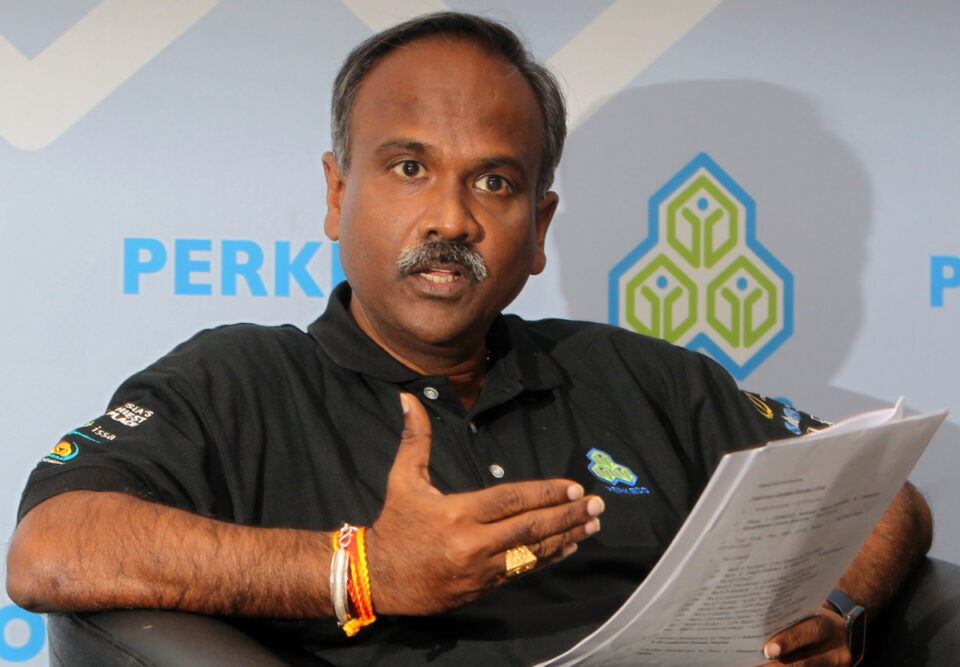KOTA KINABALU, July 4 — The Human Resources Ministry is dedicated to formulating policies and spearheading initiatives that enable Malaysians to enhance soft, technical and future work skills, said its minister V Sivakumar.
The ministry will also support industry players in offering their employees greater upskilling and reskilling opportunities.
He said dynamic, knowledgeable and highly skilled workforce development is a crucial aspect to continuously enhance the business environment, stand out from the regional peers and appeal to global players.
“The country is on a solid growth projection, and we need to build on this momentum. Last year, we recorded a Gross Domestic Product (GDP) growth of 8.7 per cent.
“This is our highest annual growth in 22 years, indicating that Malaysia is on a solid path to recovery,” Sivakumar said at the National Human Capital Conference and Exhibition (NHCCE) 2023 – Borneo Region, earlier today.
The two-day event was jointly officiated by the minister and Deputy Chief Minister I and state Agriculture, Fisheries and Food Industry Minister Datuk Seri Jeffrey Kitingan, who represented Sabah Chief Minister Datuk Seri Hajiji Noor.
The Human Resource Development Corporation organised the event in partnership with the Sabah Economic Development and Investment Authority, which drew over 1,000 participants, and showcased close to 100 exhibitors and an excellent mix of local and international speakers, including leading minds from Sabah and Sarawak.
Sivakumar said Malaysia has witnessed significant investment commitments from global giants like Tesla, AMD Global Services, and Amazon Web Services, which would generate new job opportunities for Malaysians, boost the development of our technological infrastructure, and elevate our high-value economic activities.
“However, this is not the time to remain complacent. As global competition intensifies, countries are competing among themselves for a finite pool of foreign investments.
“In fact, our regional counterparts, such as Indonesia, Vietnam and the Philippines, have all embarked on intensive and proactive efforts to attract more MNCs to their countries,” he added.
On the NHCCE 2023 – Borneo Region, Sivakumar said he strongly believes the conference is an excellent platform for the convergence of ideas, discourse and strategy to drive Malaysia’s human capital efforts in the medium to long term, at the same time, spark important conversations about the challenges, opportunities and way forward for industry players in Sabah and Sarawak.
Meanwhile Hajiji, in his speech read by Jeffrey, said the Sabah government fully supports any effort to drive economic activity and nurture human capital development to sustain and grow long-term investments coming to the state.
Sabah’s economy has remained resilient, proven by the fact that from 2020 to 2022, it has secured investments worth RM11.5 billion, with 89 projects generating over 4,500 job opportunities for Sabahans.
“Of the RM11.5 billion, RM9.2 billion consisted of foreign direct investments, and another RM2.3 billion were domestic investments. This represented 72.9 per cent of the investments or RM8.4 billion for the manufacturing sector, the primary sector comprising agriculture, mining, commodity and plantation (RM1.6b) and the service sector (RM1.5b).
“Apart from these, I am also delighted to share that the Integrated Green Steel Project, worth RM19.6 billion at the Sipitang Oil and Gas Industrial Park, is expected to create more than 10,000 high-skilled job opportunities for the local community,” he said.
The Chief Minister also said Malaysian Borneo would soon have an excellent infrastructure that will expand economic activities to previously inaccessible locations within both states with the completion of the Pan Borneo Highway project coupled with the construction of Phase Two and Phase Three of the Sabah-Sarawak Link Road Project.
“While such investments place Sabah and Sarawak in good stead, we need a strong, dynamic and agile workforce and talent pool to sustain and grow these investments for the long term.
“Beyond that, strong human capital is essential in ensuring we continue to create and maintain well-developed infrastructure and stay ahead of increasing competition in Southeast Asia,” he said.
— Bernama





